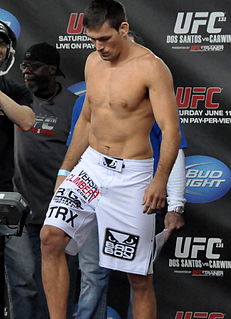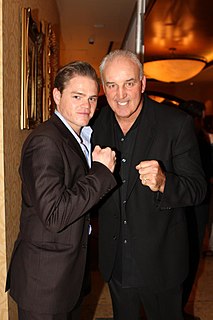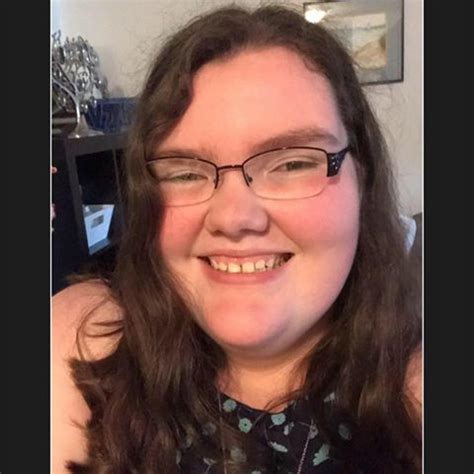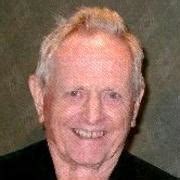A Quote by Matt Barnes
I was one of those guys that really had to fight to make it in this league. Early on, I really had to do whatever it took, whether it be fight, rough people up, to make the team. I looked at it as it's either me or them - and it was going to be me.
Related Quotes
When I watched the first fight between Woodley and Thompson, and I want to make clear that I really admire both guys, for me the fight was really boring at UFC 205 because nobody pulled the trigger for three rounds. The fourth round there was a scramble and that was really exciting, but then the fifth round was so-so again.
I found people I really wanted to work for; I made myself available to do whatever I could with the skills I had; I took some risk, packing up and moving to Chicago; and I looked for the opportunities that fit for me. So I think the biggest advice is to find people you love to work for who you're going to learn from.
I thought I had everything going for me. I wasn't listening to nobody. And my dad was like, 'Uh-uh, you can't make money from music. You have to be a doctor, a lawyer, engineer. Something that's going to do something for this world. Music doesn't do anything.' And I had to fight that, his passion, and fight the society that I was from.
I think there's an opportunity for a couple of them for sure, maybe more depending upon the situation, but it's too early to say which ones. It's a pretty competitive fight. And that doesn't mean the older guys are just going to walk into spots. I remind them all the time - you got to earn everything you get. And that's what made our team good last year, is guys really competed for opportunities and understood their roles.
Around 2010 - I took a long look at everybody I had around me because I wanted to make sure they were aligned with how I felt. I'm not ashamed of who I am or where I came from or the size God gave me. There was a large percentage of people who weren't [on the same page]. So I really shook up my team.





































